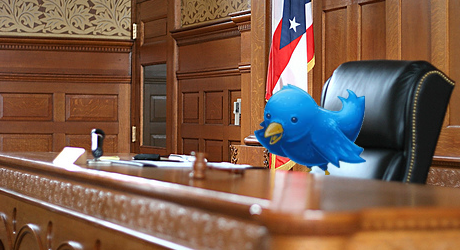US subpoenas Wikileaks tweets, and why this could affect you

The US government has subpoenaed Twitter in a bid to support an ongoing criminal investigation into whether Wikileaks and people involved or connected to Wikileaks, including an Icelandic member of parliament, broke the law.
According to Wikileaks lawyer Mark Stephens live on the BBC News a short time ago, it is believed Facebook and Google (see here) have also been contacted regarding Wikileaks members and potential whistleblowers.
Update (12:20am GMT): Mark Stephens on the BBC News also makes clear that the court order will also cover the "600,000 odd followers that Wikileaks has on Twitter".

The order asks specifically for names of those attached to selected accounts, user and screen names, and any registered mailing or postal addresses. It also asks for email addresses, credit card details where possible, and even content relating to connected mobile phones.
The server logs which could identify the computer and geographical location of where even private messages were sent from have also been ordered to be handed over.
"A federal court in Virginia has ordered Twitter to provide information for each account registered to Assange, U.S. Army Pfc. Bradley Manning, Rop Gonggrijp, a reported computer hacker from the Netherlands, and Birgitta Jónsdóttir, a member of parliament in Iceland and a former volunteer with WikiLeaks, according to documents sent to CNN by Jónsdóttir."
Twitter is in a difficult position. Considering their stance during the Iranian elections supporting the freedom of speech, it will appear as if the company is backtracking or giving into pressure by handing over details of its users to its government.
Jónsdóttir retweeted a message purporting Twitter's efforts, however, in bringing this subpoena into the public domain.
This case should resonate with younger users especially, as prolific social network users, that US law can apply to users of social networking sites to users outside the United States, as seen in this case.
Though datacenters are held worldwide in different locations to allow network load balancing, locale reliability and data backups, the organisations which provide these services are based mostly in the US. Both Twitter and Facebook are based in California, as are many startup and social media companies.
For example, if one publishes a threatening tweet from the UK to a service based in the US, this can be used in a UK or US court of law if the company is subpoenaed.
Users should also be reminded that sharing links to still-classified documents hosted by Wikileaks could be risky to future career prospects, such as in the public sector or the diplomatic corps.
The younger generation who are largely unaware of legal processes should be aware that it is nearly impossible to delete a message from the Web once it has been published. Also, as this case shows, published content even from social networking sites can be used against you in a court of law.